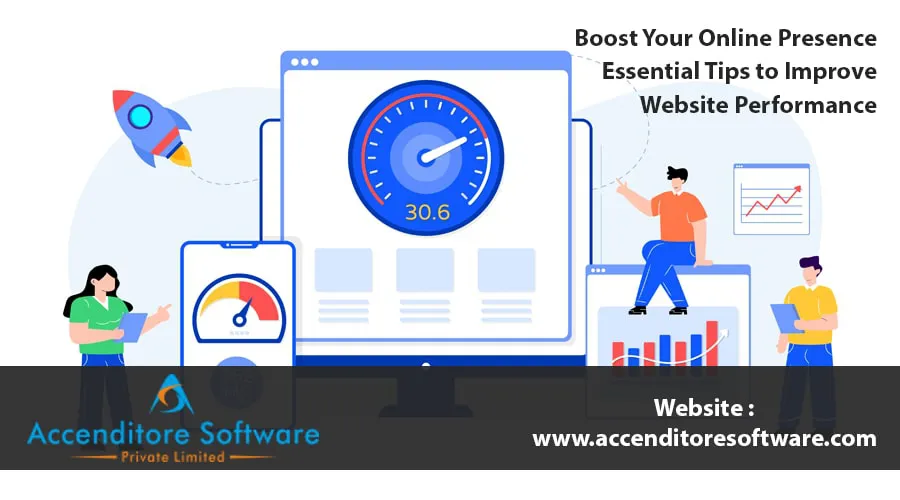
Boost Your Online Presence: Essential Tips to Improve Website Performance
Introduction: In today's digital era, a high-performing website is crucial for engaging visitors, driving conversions, and achieving online success. A slow and poorly optimized website can result in a negative user experience, lower search engine rankings, and missed opportunities. In this blog post, we will explore valuable tips to help you improve your website's performance and deliver an exceptional user experience.
-
Optimize Page Load Speed: Page load speed is a critical factor that impacts user satisfaction and search engine rankings. Compress and optimize images, minify CSS and JavaScript files, enable browser caching, and utilize content delivery networks (CDNs) to ensure fast and efficient loading times. Regularly monitor your website's performance using tools like Google PageSpeed Insights or GTmetrix to identify areas for improvement.
-
Implement Responsive Design: With the increasing use of mobile devices, it's essential to have a responsive website design that adapts to different screen sizes. A responsive design ensures your website is accessible and user-friendly across various devices, providing a seamless experience for all visitors. Test your website on different devices and browsers to ensure consistent functionality and visual appeal.
-
Optimize Images and Media: Large images and media files can significantly slow down your website. Resize and compress images without compromising quality using tools like Adobe Photoshop or online services like TinyPNG. Consider lazy loading techniques to load images as users scroll, reducing initial load times. Additionally, use appropriate file formats and optimize video and audio files for web playback.
-
Minimize HTTP Requests: Each element on your website, such as images, scripts, and stylesheets, requires an HTTP request to load. Minimize the number of HTTP requests by combining and minifying CSS and JavaScript files. Use sprites for small images and consider using inline CSS for critical elements. Reducing HTTP requests will speed up your website's loading time.
-
Enable Browser Caching: Leverage browser caching to store static files, such as CSS, JavaScript, and images, on visitors' devices. By setting appropriate caching headers, returning visitors can load your website faster as their browsers retrieve files from the cache instead of making new requests to the server. Consult your server configuration or use plugins like W3 Total Cache or WP Rocket to enable browser caching.
-
Optimize Code and Database: Ensure your website's code is clean, efficient, and well-structured. Remove unnecessary plugins, themes, and code snippets that are not in use. Optimize your database by removing unused data, spam comments, and revisions. Regularly update your CMS, themes, and plugins to ensure compatibility and security while taking advantage of performance enhancements.
-
Use Content Delivery Networks (CDNs): CDNs distribute your website's static content across multiple servers worldwide, reducing latency and improving load times. Popular CDNs like Cloudflare, Akamai, and Amazon CloudFront cache your website's files on their servers, delivering them from the closest location to each visitor. Implementing a CDN can significantly improve your website's performance, especially for global audiences.
-
Monitor and Analyze Performance: Regularly monitor your website's performance using tools like Google Analytics or other monitoring services. Track key metrics such as page load times, bounce rates, and conversion rates. Analyze the data to identify bottlenecks, detect trends, and make data-driven decisions to optimize your website further.
Conclusion: Optimizing your website's performance is crucial for delivering a seamless user experience, increasing engagement, and achieving your online goals. By implementing these tips and continuously monitoring and optimizing your website, you can enhance page load speed, responsiveness, and overall performance. A high-performing website not only satisfies visitors but also boosts search engine rankings and supports your business growth in the competitive digital landscape.
Write a Comments
Your email address will not be published. Required fields are marked*

0 Comments